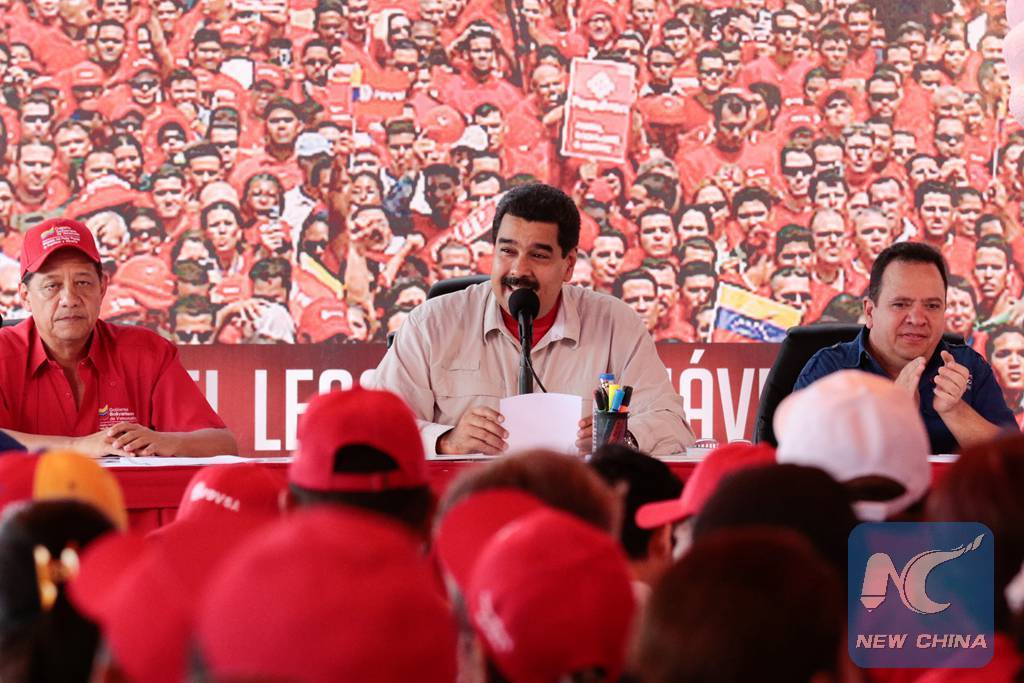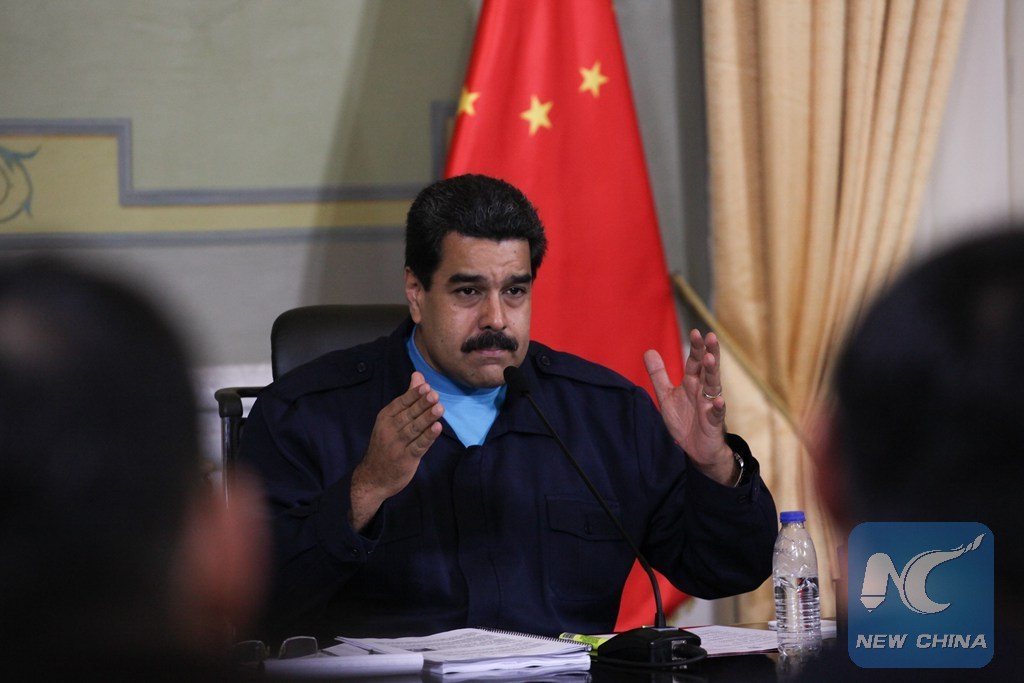
Image provided by Venezuela's Presidency shows Venezuelan President Nicolas Maduro delivering a speech during the meeting with workers of Orinoco Belt, at the Morichal Oilfield, state of Monagas, Venezuela, on Aug. 1, 2015. (Xinhua/Venezuela's Presidency)
By Victoria Arguello
CARACAS, Aug. 5 (Xinhua)-- State-run oil companies of Venezuela and China are joining hands to boost oil output from the Orinoco oil belt in southeastern Venezuela, which boasts one of the world's largest oil reserves.
The Venezuelan government is seeking to export up to 1 million barrels of oil a day to China. Venezuela's PDVSA and China National Petroleum Corporation (CNPC) are working together on an expansion plan to raise the export from the current 600,000 barrels per day (bpd), turning the South American country into a reliable oil exporter.
"We want to ensure a steady supply regardless of oil prices," Venezuela's Oil Minister Eulogio del Pino told Chinese media after a recent visit to the oil belt.
The expansion plan involves improving infrastructure for the joint venture Sinovensa running in the oil belt between the two countries, in the hope of raising its oil output to 275,000 bpd from the current level of some 170,000 bpd.

Venezuelan President Nicolas Maduro meets with a Chinese enterprises delegation, in Caracas, Venezuela, on Aug. 6, 2015. (Xinhua/Boris Vergara)
The two state-run oil companies are also planned to improve Venezuela's capacity for oil processing, by building a new dehydration and desalination plant and doubling the capacity of the Jose Processing Plant, based in the state of Anzoategui, to at least 330,000 bpd of extra-heavy crude oil in 2017.
"We also have approved loans of 5 billion U.S. dollars from the China Development Bank for other sides," including inputs in other joint ventures, said del Pino.
Meanwhile, China and Venezuela are trying to make the transportation of crude oil from the Orinoco oil belt to China faster and more efficient.
"Currently, a super oil tanker leaves Venezuela every three days for China and it takes 45 days to reach China. We will be able to shorten the voyage by traveling via the newly expanded Panama Canal," said del Pino.
To this end, a new terminal for oil tankers will be built this year on the Araya peninsula in the state of Sucre.
Furthermore, the southern Chinese city of Jieyang in Guangdong Province is building an oil refinery aimed at processing up to 400,000 bpd of oil coming from Venezuela.

